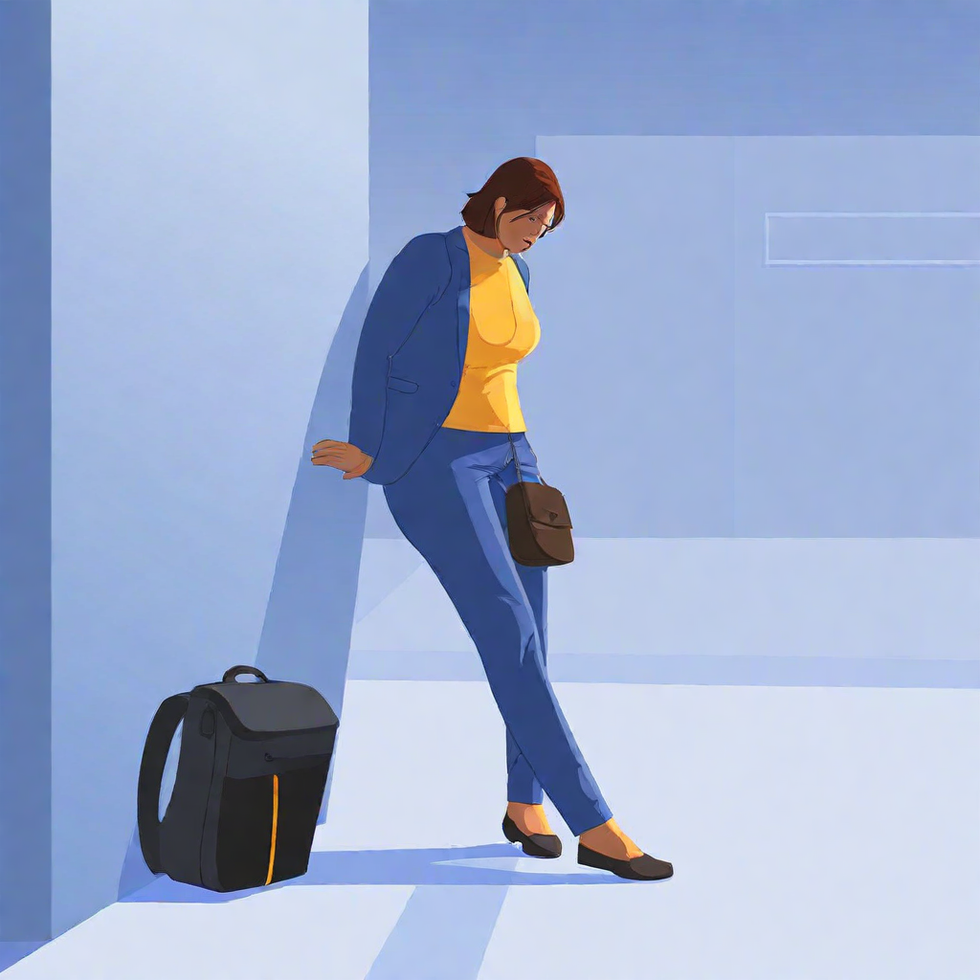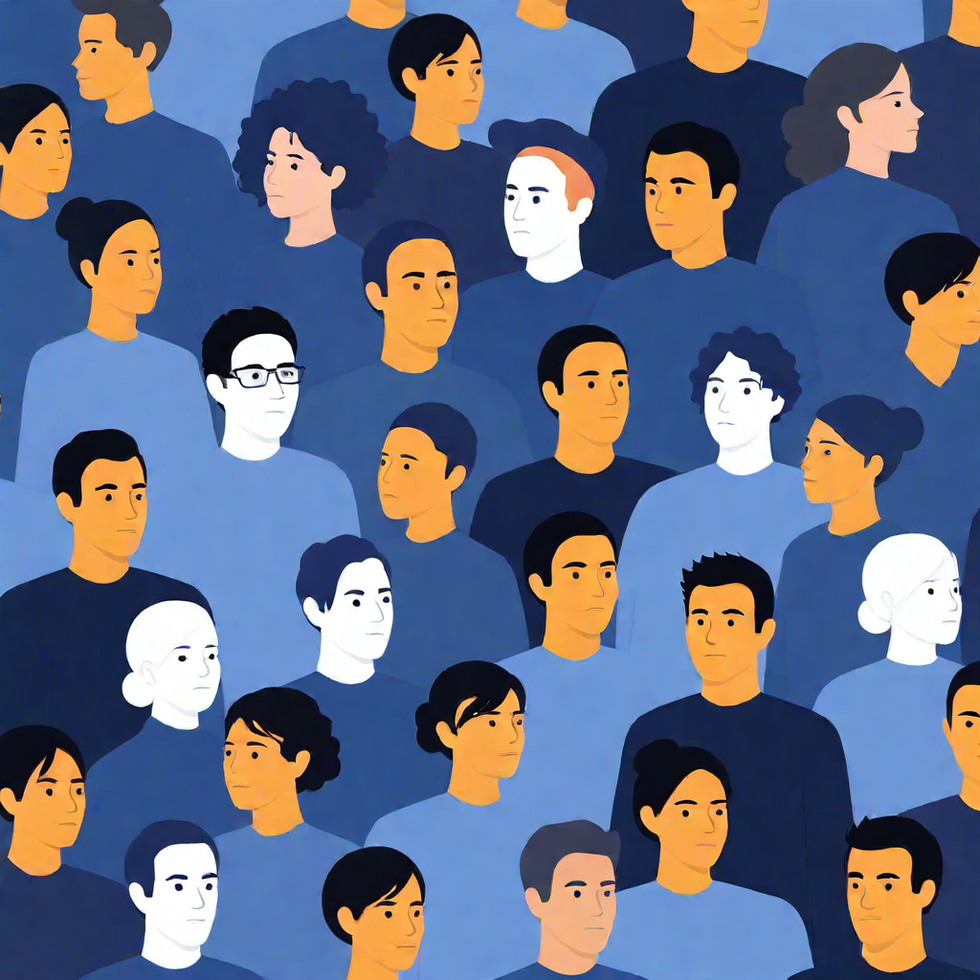
Lonely in the UAE? You're not alone.
Home FeaturedSome can ward off loneliness by connecting with others or bringing family along with them during their big move. Not everyone though.
Oct 02, 2024
Oct 24, 2024
Share
Share this link via
Copy Link
https://nukta.com/lonely-in-the-uae-you-re-not-alone
“Everyone’s there with a business card,” said Ali Ilyas, reflecting on the social events he attended as a new expat in Dubai. “Very few are there with a handshake.”
The Pakistani psychotherapist moved to Dubai around seven months ago. You’d think if anyone knew how to deal with isolation, it would be him. But Ilyas, like many others in the UAE, gets lonely.
The World Health Organisation declared loneliness and social isolation a global public health concern in 2023, linking it to anxiety, depression, suicide, dementia and an increased risk of stroke and cardiovascular disease. United States Surgeon-General Vivek Murthy said a lack of social connection could increase the risk of premature death by as much as smoking up to 15 cigarettes a day.
Few recent studies have focused on social isolation in the UAE. While many expats build strong support systems, some bring family or already have loved ones in the country, reducing loneliness.
However, many still relate to the isolation often felt in big cities.
Transactional relationships
The seemingly transactional nature of relationships is an oft-cited reason for loneliness. Several have said that the prevalence of hustle culture prevents them from forming deep relationships.
Ali Ilyas speaks of his experience at what was supposed to be a social event for new expats.
- YouTubewww.youtube.com
Ilyas cites Yalom’s model of existential psychotherapy to provide a framework to understand the three types of loneliness - existential, interpersonal and intrapersonal.
Experiences of isolation

Despite moving to Dubai just a month ago, 28-year-old S.N. cries as she describes her loneliness on Sundays as she prepares for the week ahead.
“It’s just knowing I’m about to spend another seven days alone,” said the British business analyst.
S.N. experiences existential loneliness, which is marked by a deep sense of being fundamentally alone in facing life’s meaning and purpose. She often thinks about how her friends back home can’t truly understand what it’s like to start over in a new country.
“People think, ‘Oh my God, she’s in Dubai, she’s got a new job, she’s good,’” she explains. “I’m probably standing there thinking, ‘You lot don't know how tough it is to be here alone.’”
S.N. calls her loved ones in the UK as much as possible to cope. She sometimes also wears a treasured scarf that belonged to her mother. While she is happy with her job and hopes to build a support system in Dubai, she said she has a “filter” on at all times. She describes the mask she wears as having a “blank stare of okayness.”

Meanwhile A.S, 32, deals with interpersonal loneliness, which involves feeling disconnected from others. A.S. has lived in Dubai for 14 years and is currently going through a divorce. He stays in a shared room with his dog, a stark contrast to his life eight months ago in a villa with his now ex-wife.
“I go back home, it’s only me and my dog. I switch off my phone,” he said. “Wake up in the morning, there’s nothing. Not a single notification.”
A.S. describes how the transient nature of big cities made it tough for him to establish deep connections that could have helped him during this tough time. “No matter how many years you stay, you’re always on transit mode. You can have a different set of friends every year,” he said.
A.S. wishes people understood that, for him, being lonely isn’t a choice.
Some choose to be lonely, choose to be alone. I don’t want to be alone.

Lastly, there are those who go through intrapersonal loneliness, which is characterized by a sense of disconnection from oneself. Like all other kinds of loneliness, it can be exacerbated by underlying mental illness.
24-year-old A.K., an Emirati medical school graduate, experienced it at 19. He enrolled in medical school as the “smart kid,” but soon found himself overwhelmed by the pressure and spiraled into depression.
“I felt isolated, I felt lonely. And all of that piled up to where I was basically flunking,” A.K. said. “I was suicidal. I saw no hope.”
It was only through therapy, self-love and introspection that he overcame his dark thoughts.
“What was beneath that layer of loneliness? It was the need for understanding, the need for companionship and the need to be loved,” he said. “I could notice that I can’t love other people if I don’t love myself first.”
‘A scaffold for the self’

Despite the individualistic nature of large cities, socializing remains essential for most people.
“A perceived sense of social connectedness serves as a scaffold for the self,” said Dr Namdev Chawan, a specialist psychiatrist at Aster DM Healthcare. “If you damage the scaffold, the rest of the self begins to crumble.”
Dr. Chawan points out several environmental factors contributing to poor socialization in big cities, such as language barriers, poor work-life balance, or a weak social network. Individual factors, like social anxiety, mental health disorders, or avoidant personality traits, also play a role.
“Many find it difficult to catch up with the culture and way of life,” said Dr Chawam. “Making them vulnerable to isolating themselves and maintaining a monotonous office-home lifestyle.”
What can I do?

Dr Chawan recommends a few ways people can prevent or cope with loneliness:
- If you are a new expat, give yourself some time to adjust to the new environment. In the meanwhile, reach out to your friends and family back home.
- Work on improving your social skills - there are many ways to find others in the city who share the same hobbies or interests as you. This can be a great way to start building a local support system.
- Embrace a healthy lifestyle both mentally and physically. Try to maintain a healthy work-life balance, eat well, get good sleep and exercise.
- Employers can also help new expats by offering them orientation programs, counseling, and flexible hours to support employee well-being.
Those dealing with severe feelings of loneliness should consider seeking professional help from a psychologist or a psychiatrist.
“A thorough assessment and management in the form of counseling, psychotherapy and medications as indicated are readily available,” said Dr Chawan.
If you or a loved one are dealing with mental health struggles, you can find additional resources via Emirates Health Services.
Back To Top
Company
© 2025 NUKTA. Owned by Pulse Media Networks FZ-LLC All Rights Reserved.



Comments
See what people are discussing